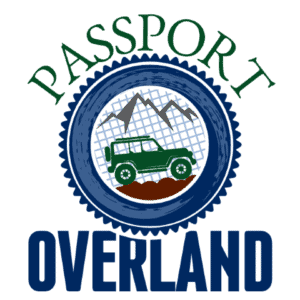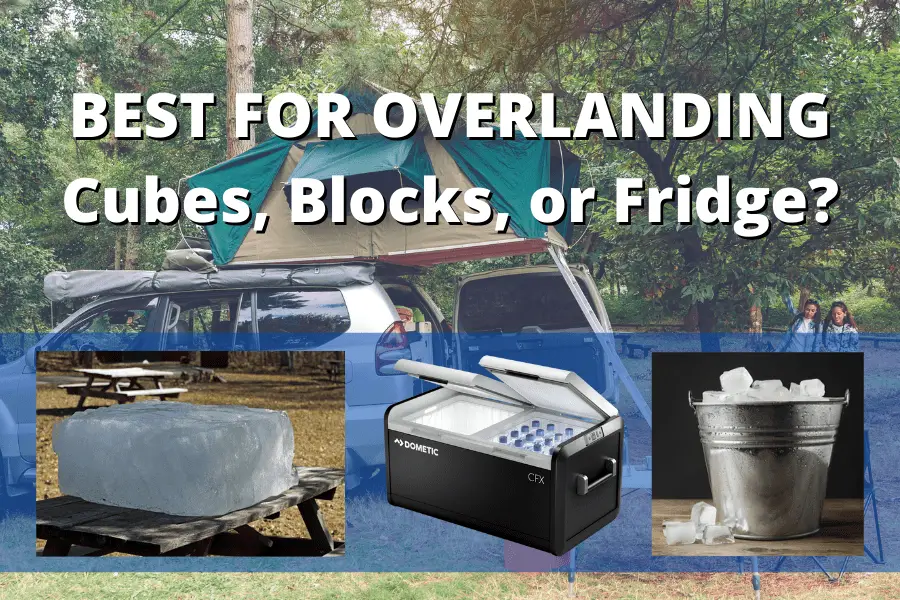
Which is Best: Ice Blocks, Ice Cubes, or Refrigerator When Overlanding?
No matter if you will be camping as near as another city or as far as a two-month worth of traveling, water, fluids, and foods are must-haves when overlanding. And keeping items cool will prevent spoiling.
When it comes to options ice blocks, ice cubes and refrigerators are what you have.
A refrigerator is by far the best long-term solution for overlanding great distances. It is convenient, guarantees that food stays fresh for several days even in a hot climate.
| ICE BLOCKS | ICE CUBES | REFRIGERATOR |
|---|---|---|
| They last about 3 days depending on the climate and time of year | Last about 1-2 days depending on the climate and time of year | Last as long as you have power, solar or electric. |
| Easy to find and buy – unless very remote | Easy to find and buy – unless very remote | No extra costs when on the road |
| Ice blocks are affordable | Ice cubes are affordable | More expensive but it is a one-time investment |
| Versatile with many uses: drinks, cold water, and cooling items | Versatile with many uses: drinks, cold water, and cooling items | Versatile with many uses: drinks, cold water, and cooling items |
| Easy to make at home using plastic bottles | Easily make at home in freezer | Don’t need to make ice |
| Use any large cooler, and fill as needed | Use any cooler, and fill as needed | Convenient storage system |
| BEST FOR WEEKEND TRIPS OR RESTOCKING AT CONVENIENCE STORES | BEST FOR WEEKEND TRIPS OR RESTOCKING AT CONVENIENCE STORES | BEST OVERALL, JUST NEED TO COVER THE UPFRONT COST |
But ice blocks and cubes have their benefits. Let’s take a closer look at each option. Then you can make your decision.
Ice Blocks: Pros, Cons, and When To Use
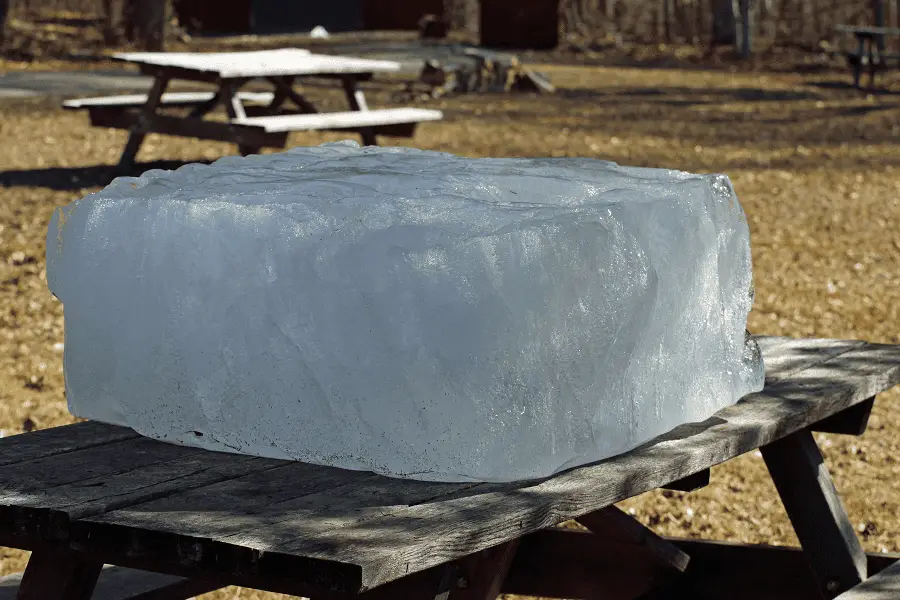
First, let us talk about ice blocks. This is one of the most common things that overlanders use because it’s easy to just put it in a cooler alongside snacks and fluids. Below is everything that you need to know when using this for trips:
Pros
- Ice blocks last long. On average, you can give it around 3 days given that you store it properly.
- It’s easy to find and buy ice blocks.
- Ice blocks are affordable.
- Almost any cooler can store ice blocks, which means that you won’t have to worry about having to buy special storage coolers.
- It’s possible to make homemade ice blocks just by freezing bottled waters. 2-liter bottles make for a good-sized ice block that won’t leave a mess as it melts.
Cons
- Ice blocks take a lot of space. Although this is the main reason why it lasts longer than other ice types, this also means that you have less space for your snacks and drinks.
- Ice blocks are heavy, which means that you may find them inconvenient if ever you need to bring them while walking.
- You need to constantly keep the ice blocks cold, so you have to be prepared for continuous maintenance if you want it to last.
When to Use Ice Blocks
Since ice blocks are guaranteed to last long, you should consider using this if your trip lasts for three days or less. If you live in a place where you can easily buy and access blocks, then that’s more of a reason to choose this over other methods.
Ice blocks also work better in cooling bottled fluids and dishes stored in containers. You will find it easy to store all these together in one cooler since you won’t have to deal with irregularly shaped snacks.
Moreover, for those looking for a good and budget-friendly alternative to refrigerators, this is the best one you can turn to.
How to Store Ice Blocks for Overlanding
Storing ice blocks is actually simple. You just need to place them inside a high-quality cooler, and you’re all set. If you happen to use reliable cooler storage, then there will be no need to maintain the blocks’ coolness.
If you want to take extra steps, then some things that you can do is to place an aluminum foil in the cooler’s interior before placing the ice blocks. After doing so, close the cooler tightly and wrap a cold towel around it. Keep it this way until the end of your trip. You should also consider placing the towel inside the cooler to regenerate its coldness once in a while before using it as a wrapper once again.
Ice Cubes: Pros, Cons, and When Should You Use These
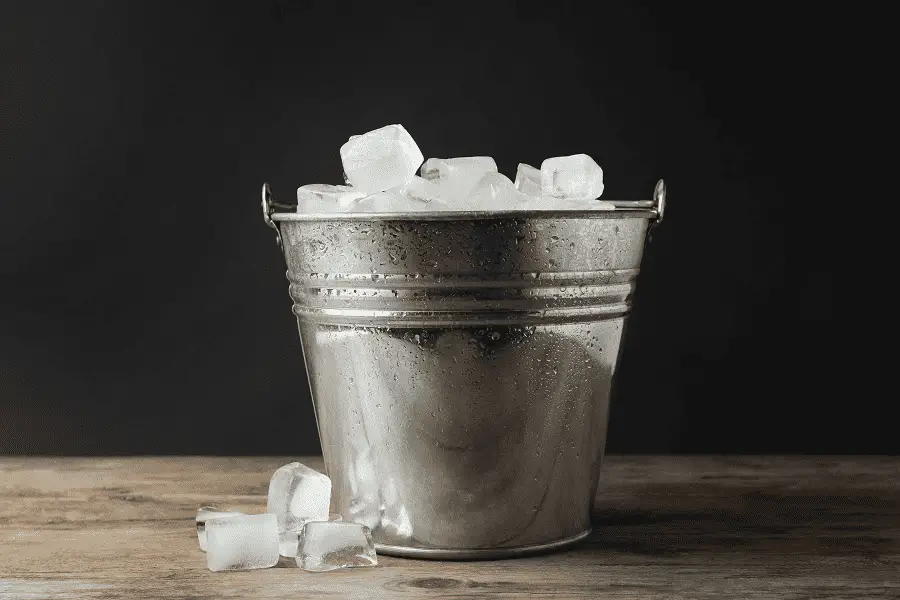
Now, let’s talk about ice cubes. This is very similar to ice blocks, except that cubes are a lot smaller in individual sizes. Below are the other things that you need to know when using this:
Pros
- Ice cubes are relatively smaller, so you can expect to easily store more snacks and drinks with them.
- Ice cubes come in many different sizes. This means that it is versatile enough to help you pack according to your needs.
- You don’t have to buy ice cubes. It’s easy to make these at home, so you can make as much as you need without having to worry about buying from stores.
- You can use ice cubes for a lot of purposes once you bring them with you on your overlanding trip. You have the choice to store some in a separate container for your drinks, another source of cold water, and likes.
- Generally, carrying a cooler with ice cubes can feel lighter for camping needs.
Cons
- Ice cubes last shorter than ice blocks. At most, this will only last for two and a half days. Although you can extend this period, it still won’t be enough to be with you for long trips.
- You may find it hard to organize the ice cubes cleanly in your cooler because of their irregular shape.
- Once the ice cubes melt, you can’t do anything else to prolong its life.
When to Use Ice Cubes
Using ice cubes will be best for short overlanding trips. This solution is as common as using ice blocks, but this is a lot more accessible since you can just freeze ice trays in your home. To add, you will never go wrong with this if you want to cut down on expenses for at least a little amount.
For overlanders who need to bring a lot of snacks and want to make the most out of a single cooler, then this is also better than ice blocks.
Note, though, that, unlike ice blocks, this can’t substitute for refrigerators. Their capabilities are just too far away from each other. Ice cubes are more of an alternative to ice blocks.
How to Store Ice Cubes for Overlanding
Storing ice cubes is just the same as storing ice blocks. You also need a high-quality cooler to work with. Aluminum foils and cold towels will also be handy for this task. Some add salt to the ice cubes to retain cold. This may not be a lot, but it will still be handy if you need to have a few more hours with your ice cubes.
Refrigerator: Pros, Cons, and When Should You Use These
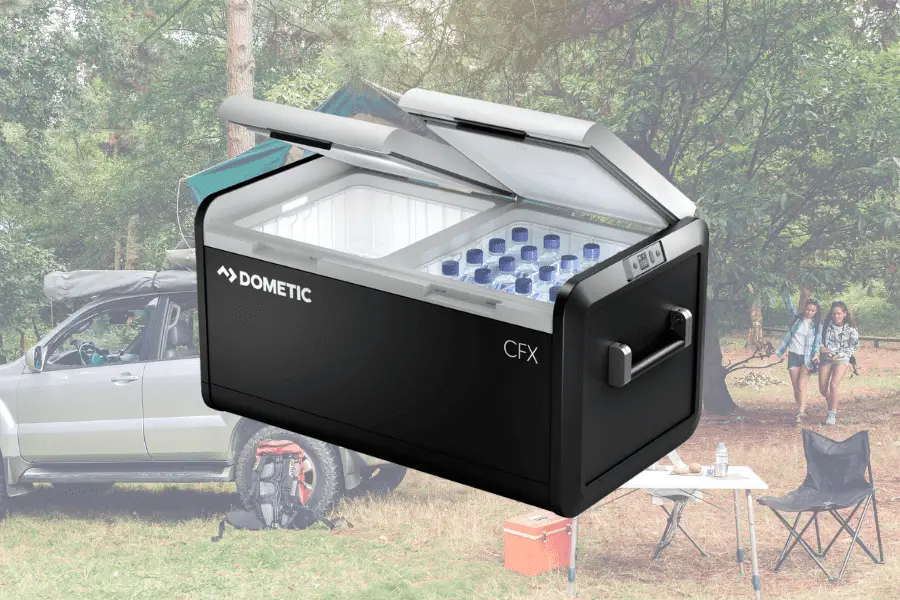
Finally, let’s talk about using a refrigerator for overlanding. Keep in mind that we’re talking about portable or mini-refrigerators rather than regular-sized ones since we’re not working with a camper van or any other vehicle with an extremely large space.
Check out the Dometic Overland Fridge on Amazon here.
We all know that refrigerators are the most convenient on this list, but what else do you need to know? Refer to the following sections:
Pros
- Refrigerators are convenient.
- You don’t have to do anything but store snacks and drinks for preparation.
- Refrigerators can last for as long as your car has remaining power.
- You can store a lot inside a refrigerator. This applies even if we’re talking about a portable fridge.
- You won’t have to worry about continuously buying a refrigerator for every overlanding trip. This is a one-time investment, unlike using ice for cooling.
Cons
- Refrigerators are expensive. You need to have the budget to work your way around this.
- Refrigerators need a certain amount of space in your vehicle. It can be space-consuming, so think about whether it will fit in your vehicle first or not.
- Using a refrigerator means using more of your car’s power. Consequently, this means that you may have to spend more on fuel.
When to Use Refrigerator
There is actually no wrong or right time to use a refrigerator. Once you’re sure that you’re willing to invest a sum in a refrigerator for your overlanding journey, and you have the space to fit it in, then there’s really no reason not to go for it. This is the best solution on this list if we’re talking about convenience and longevity.
Final Thoughts
So, the question as to which will be best between ice blocks, ice cubes, and refrigerator in terms of overlanding needs will depend on your planned trip. Specifically, you should consider factors, such as the type of food and fluids you will bring, how much you will pack, and how long your trip will be.
For our recommendations, ice blocks are best for keeping a moderate amount of food and water fresh for a maximum of three days. You can also consider this for trips that will last three days and a half, but only if you’re going to a naturally cool place.
Ice cubes can last for about two to two and a half days maximum. This is best for shorter trips with, again, a moderate amount of food and fluids.
Basically, the use of ice blocks and ice cubes doesn’t stray far from each other. Their only difference lies in how long they can last, which is still an essential factor that you need to take into account when deciding. You should pay attention to where you will store them since this will also affect the ice’s quality. Pick a high-quality cooler to accompany your overlanding trip.
On the last note, getting a refrigerator will never be the wrong choice. It’s convenient, and can guarantee that your food stays fresh for several days even if you’re in a place with a hot climate. Keep in mind, though, that you will only be able to make the most out of this if you have enough budget and space in your overlanding vehicle.
Nonetheless, whichever method you use to store your food and water, make sure to look at their quality before buying. This is most especially if you choose to use a refrigerator.
